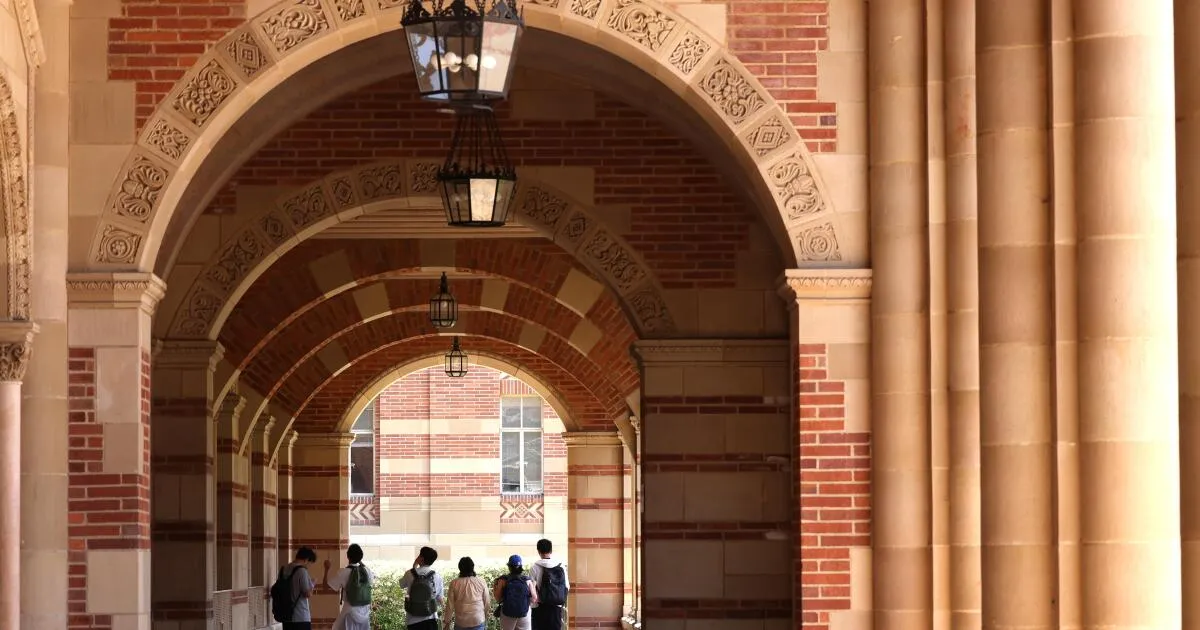
A federal judge has mandated the Trump administration to reinstate hundreds of suspended UCLA science research grants, a decision that impacts over a third of awards, amounting to a staggering $584 million. This ruling came on Tuesday, following a San Francisco court hearing earlier in the day. U.S. District Judge Rita F. Lin determined that the government's abrupt freeze on UCLA funding was in direct violation of her previous ruling from June, which had prohibited the termination of science research grants.
In her order, Judge Lin stated, “The National Science Foundation’s suspension of the grants at issue here is vacated.” She also instructed the Trump administration to provide an update by August 19, detailing whether the grants had been restored or explaining why restoration was not feasible, along with the steps taken thus far.
This case, independently filed by a group of professors from the University of California, marks the first legal challenge regarding the significant suspensions of grants at UCLA. The Trump administration had frozen more than half a billion dollars in federal funding for science, medical, and other grants, citing allegations of discrimination in admissions and a failure to maintain a research environment devoid of antisemitism at the university. The suspended grants encompass vital research funded by the National Science Foundation (NSF), the National Institutes of Health (NIH), and the Department of Energy, covering critical areas such as cancer research, neurobiology, and clean energy initiatives.
In a statement regarding the court's decision, a spokesperson for the University of California expressed that the restoration of these funds is “critical” for ongoing research efforts. Stett Holbrook, the associate director of strategic and critical communications, emphasized the importance of NSF funding for the research conducted by the University of California on behalf of both California and the nation.
Claudia Polsky, a law professor at UC Berkeley representing the researchers in the case, expressed optimism that the ruling would aid UCLA in resisting the Trump administration’s funding cuts and its demand for a staggering $1 billion to restore the grants. “Hundreds of UCLA researchers can now get back into labs, into the field, and back on task,” Polsky stated, highlighting the significance of the ruling in providing UCLA with leverage against the administration's demands.
The order issued on Tuesday specifically pertains to NSF grants, which account for about 300 of the frozen awards at UCLA. Notably, hundreds of other suspended grants from the NIH and the Energy Department remain unaffected by this ruling. The legal challenge arose not from a lawsuit by the University of California but from a class-action suit filed by researchers from UC San Francisco and UC Berkeley.
During the Tuesday hearing, the court grappled with whether the recent NSF cuts violated Judge Lin’s earlier order that had blocked terminations of science funding for many UC researchers across the nine-campus system. Professors funded by the NSF, the Environmental Protection Agency, and the National Endowment for the Humanities had argued that their funding was cut due to their grants appearing in federal keyword searches related to race, amid President Trump’s initiative to eliminate diversity, equity, and inclusion programs. They contended that the government’s use of generic form letters without explanation violated federal law, which mandates that officials cite specific reasons for withdrawing funds that had been approved through a competitive application process.
In her ruling, Judge Lin indicated a strong inclination to side with the researchers, stating that NSF’s indefinite suspensions are essentially similar to terminations. She clarified that her injunction covers circumstances where grant funding is cut off for the long term or indefinitely, such as the suspensions executed by NSF on July 30.
During the hearing, Judge Lin pressed the Trump administration's lawyers to justify why the latest funding cuts did not breach her earlier order. Government lawyers argued that these funding freezes were merely “suspensions,” not permanent terminations. However, Lin rejected this distinction, asserting that the terms “suspension” and “termination” yield the same consequences for researchers, who face dire financial repercussions.
The Trump administration's demands include more than just financial restitution; they also seek sweeping changes at UCLA regarding protest rules, gender identity policies, admissions data sharing, and other areas. University leaders have expressed their willingness to negotiate but labeled the current terms as “unacceptable.” California Governor Gavin Newsom has characterized the Trump administration's demands as attempts at “extortion” and “ransom,” suggesting that he may pursue legal action against the federal government.
As the situation unfolds, the restoration of the UCLA science research grants represents a significant victory for the university, its researchers, and the broader academic community, while also highlighting the contentious intersection of politics and academic funding.